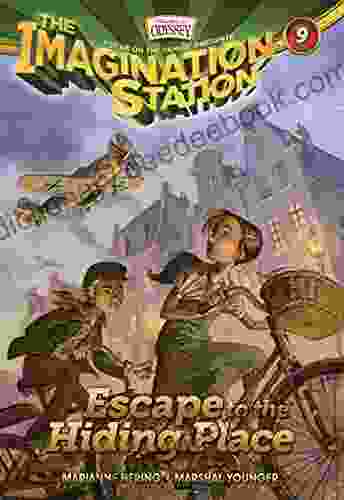The Good Neighbor Policy and the Trujillo Regime in the Dominican Republic: A Comprehensive Analysis

4.5 out of 5
| Language | : | English |
| File size | : | 3610 KB |
| Text-to-Speech | : | Enabled |
| Screen Reader | : | Supported |
| Enhanced typesetting | : | Enabled |
| Word Wise | : | Enabled |
| Print length | : | 369 pages |
| X-Ray for textbooks | : | Enabled |
The Good Neighbor Policy, a cornerstone of United States foreign policy towards Latin America during the 1930s and 1940s, aimed to foster improved relations and promote cooperation between the United States and its southern neighbors. However, the policy's implementation in the Dominican Republic under the authoritarian rule of Rafael Trujillo revealed its limitations and complexities.
Historical Context
In the early 20th century, the Dominican Republic faced a turbulent political landscape marked by military coups, economic instability, and U.S. intervention. In 1930, Rafael Trujillo emerged as the nation's leader, seizing power through a military coup and establishing a dictatorial regime that would last for over three decades.
The Good Neighbor Policy and the Trujillo Regime
The Good Neighbor Policy, implemented by President Franklin D. Roosevelt in 1933, signaled a shift in U.S. foreign policy towards Latin America. It aimed to abandon the previous policy of military intervention and instead foster cooperation and mutual respect.
Initially, the United States recognized Trujillo's government and maintained diplomatic relations. However, as the extent of Trujillo's repressive rule and human rights violations became evident, the U.S. government began to reassess its support.
Key Events and Tensions
Several key events strained relations between the United States and the Trujillo regime:
- The Parsley Massacre (1937): Trujillo's regime ordered the massacre of thousands of Haitian migrant workers, sparking outrage in the international community.
- The Murder of the Mirabal Sisters (1960): The assassination of three anti-Trujillo activists by the regime further damaged the United States' view of Trujillo's government.
Despite these events, the United States continued to provide economic and military aid to the Dominican Republic, albeit with increasing reluctance.
Consequences and Legacy
The Good Neighbor Policy's application in the Dominican Republic had mixed consequences:
- Short-Term Impact: The policy initially led to improved diplomatic relations between the United States and the Dominican Republic, contributing to economic stability.
- Long-Term Impact: However, the policy's failure to effectively address Trujillo's human rights abuses and authoritarian rule ultimately undermined its credibility and contributed to the Dominican Republic's ongoing legacy of political instability.
The Good Neighbor Policy's implementation in the Dominican Republic under the Trujillo regime was a complex and challenging chapter in U.S.-Latin American relations. While the policy aimed to promote cooperation and mutual respect, it struggled to effectively address the human rights violations and authoritarianism that pervaded Trujillo's rule.
The experience of the Good Neighbor Policy in the Dominican Republic highlights the tension between the United States' desire for stability and its commitment to human rights and democracy. It also serves as a reminder of the ongoing challenges and complexities of foreign policy in the region.
4.5 out of 5
| Language | : | English |
| File size | : | 3610 KB |
| Text-to-Speech | : | Enabled |
| Screen Reader | : | Supported |
| Enhanced typesetting | : | Enabled |
| Word Wise | : | Enabled |
| Print length | : | 369 pages |
| X-Ray for textbooks | : | Enabled |
Do you want to contribute by writing guest posts on this blog?
Please contact us and send us a resume of previous articles that you have written.
 Book
Book Novel
Novel Page
Page Chapter
Chapter Story
Story Genre
Genre Paperback
Paperback Paragraph
Paragraph Sentence
Sentence Bookmark
Bookmark Shelf
Shelf Bibliography
Bibliography Preface
Preface Annotation
Annotation Manuscript
Manuscript Tome
Tome Narrative
Narrative Biography
Biography Memoir
Memoir Reference
Reference Encyclopedia
Encyclopedia Dictionary
Dictionary Thesaurus
Thesaurus Resolution
Resolution Librarian
Librarian Catalog
Catalog Card Catalog
Card Catalog Borrowing
Borrowing Stacks
Stacks Archives
Archives Periodicals
Periodicals Lending
Lending Academic
Academic Special Collections
Special Collections Literacy
Literacy Thesis
Thesis Dissertation
Dissertation Storytelling
Storytelling Book Club
Book Club Textbooks
Textbooks Sandra Bretting
Sandra Bretting Die Kulinarischen Gaumenfreunde
Die Kulinarischen Gaumenfreunde Michael Jacobsen
Michael Jacobsen Tony Preciado
Tony Preciado Richard Harding Davis
Richard Harding Davis Lynne Bradley
Lynne Bradley Leonardo De Marchi
Leonardo De Marchi William Winter
William Winter Cgp Books
Cgp Books Mya Grey
Mya Grey Nicholas Tomihama
Nicholas Tomihama Mark Carthew
Mark Carthew Joshua Griffith
Joshua Griffith Anne Haas Dyson
Anne Haas Dyson Edward Vallance
Edward Vallance Todd Stanley
Todd Stanley Keith Urban
Keith Urban Poppy Rose
Poppy Rose Thomaseli
Thomaseli Marsell Morris
Marsell Morris
Light bulbAdvertise smarter! Our strategic ad space ensures maximum exposure. Reserve your spot today!
 Andy HayesFollow ·15.4k
Andy HayesFollow ·15.4k Felipe BlairFollow ·17.8k
Felipe BlairFollow ·17.8k Dale MitchellFollow ·4.7k
Dale MitchellFollow ·4.7k Kelly BlairFollow ·11.7k
Kelly BlairFollow ·11.7k Glenn HayesFollow ·7k
Glenn HayesFollow ·7k Stephen FosterFollow ·13.6k
Stephen FosterFollow ·13.6k Vincent MitchellFollow ·2.9k
Vincent MitchellFollow ·2.9k Adam HayesFollow ·17.2k
Adam HayesFollow ·17.2k

 Jerome Powell
Jerome PowellBarbara Randle: More Crazy Quilting With Attitude -...
A Trailblazing Pioneer in...

 Jan Mitchell
Jan MitchellLapax: A Dystopian Novel by Juan Villalba Explores the...
In the realm of dystopian literature, Juan...

 Rodney Parker
Rodney ParkerOur Mr. Wrenn: The Romantic Adventures of a Gentle Man
Our Mr. Wrenn is a 1937 novel...
4.5 out of 5
| Language | : | English |
| File size | : | 3610 KB |
| Text-to-Speech | : | Enabled |
| Screen Reader | : | Supported |
| Enhanced typesetting | : | Enabled |
| Word Wise | : | Enabled |
| Print length | : | 369 pages |
| X-Ray for textbooks | : | Enabled |


















